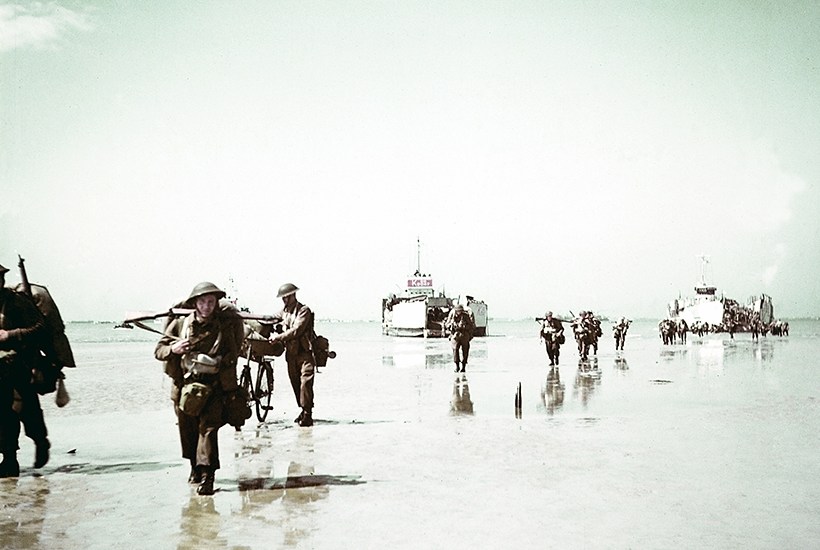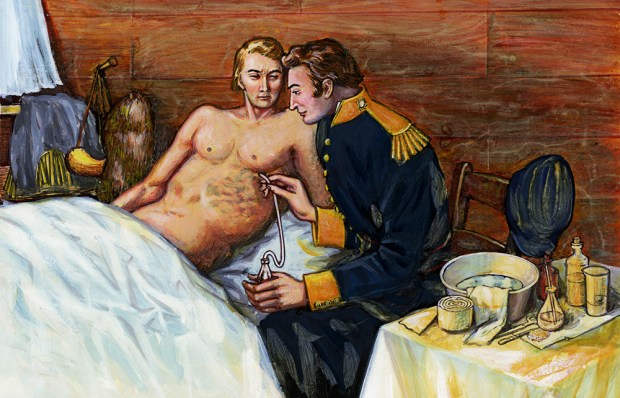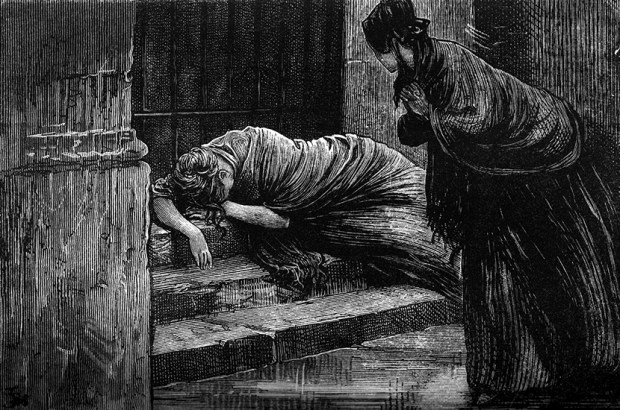The vast majority of the British public, and even military historians, have never heard of them. COPPists — a combination of naval navigators and submariners with SBS (Special Boat Service) swimmers — played a key role in the planning and execution of Operation Overlord, the D-Day invasion of Europe. Admiral Ramsay, the architect of the naval element, said: ‘On their operations depended to a very great extent the final success of Operation Overlord.’
Who were these people, and what exactly did they do? Saul David provides the answers in a detailed analysis of the development of seaborne special forces formed in Britain’s darkest hour to take the offensive against the seemingly invincible German war machine. He has shown great skill in pulling the disparate threads of unit reports into a cohesive story. Many of these reports of operations from secret SBS archives were embargoed until now, and it is unsurprising that today’s SBS considers the book the authorised wartime history.
It is a riveting story, and very British. In 1940 a few visionary men who saw the potential for clandestine marine operations against our land-focused German enemy came up with plans for using collapsible canoes or Folbots. Men from all parts of society and from all over the empire made up select groups of canoeists. We get a vibrant picture of them, their backgrounds and foibles. Those recruited were generally quiet and understated. Roger Courtney, the father of the SBS, had a sign on his desk that read: ‘Are you tough? If so get out. I need buggers with intelligence.’ They were without exception daring and brave.
Often deployed in submarines, Folbotists were given this advice in the event of being depth-charged:
Pay no attention, read an improving book (it might be held upside down but it doesn’t matter, it is the impression that counts), everyone is just as tense as you are and nothing can be done about it.
Besides the well-known operations featured in this book, how many readers were aware of the failed attempt to capture or kill Rommel, or knew of the machinations involving senior French officers before Operation Torch (the invasion of North Africa)? At the planning conference for Torch it was pointed out that, ‘It doesn’t matter how many compasses you give the landing craft. They won’t find the beaches unless someone guides them in.’ The Folbotists were set this task and performed it very successfully.
As all this was going on, back in Britain Major Blondie Haslar was forming the Royal Marine Boom Patrol Detachment (RMBPD) to attack ships in harbour. The name was designed to confuse the enemy as to its purpose. David cleverly weaves the narrative strands of this group as it develops into Operation Frankton, better known as ‘The Cockleshell Heroes’. It is a gripping story, and riveting in its detail. Under Hitler’s infamous Commando Order of 18 October 1942 (that any commando captured would be shot), some of these men lost their lives.
After their success in Operation Torch, Nigel Willmott was able to form the Combined Operations Pilotage Parties (COPP). These canoeists could provide beach intelligence. In addition to reconnaissance, they would be required to act as pilots and markers in landing operations. For the Normandy landings, however, a new modus operandi using midget submarines had to be learned. It was, and with startling success.
David provides a comprehensive description of the operations leading up to D-Day and the action itself. It is particularly fascinating that our COPPists warned General Omar Bradley about Omaha Beach on the strength of their recces: ‘Sir, I hope you don’t mind me saying it, but this beach is a very formidable proposition indeed.’ Omaha was the most bloody beach on D-Day.
The last section of the book covers clandestine operations in Burma, Thailand, Malaya and Sumatra, carried out with the same bravery and panache as those in Europe. Throughout, David touches on the wrangling over who should have control of the various groups of special forces. Today UK Special Forces consist of the Special Air Service (Army) and Special Boat Service (Royal Navy/Royal Marines).
What makes the many operations described so extraordinary is that they were accomplished by a handful of brave, determined men, paddling flimsy canoes and only lightly armed. They worked deep inside enemy territory and were likely to be executed if caught. Many drowned in freezing water after hours of attempting to complete their mission. It demanded cool, calculated valour of a very high order. Not surprisingly, therefore, many were highly decorated.
This book is a must for naval and military historians. Beyond that, the knowledge of those involved, their bravery and jeopardy, will grip the general reader.
Got something to add? Join the discussion and comment below.
Get 10 issues for just $10
Subscribe to The Spectator Australia today for the next 10 magazine issues, plus full online access, for just $10.
You might disagree with half of it, but you’ll enjoy reading all of it. Try your first month for free, then just $2 a week for the remainder of your first year.














Comments
Don't miss out
Join the conversation with other Spectator Australia readers. Subscribe to leave a comment.
SUBSCRIBEAlready a subscriber? Log in